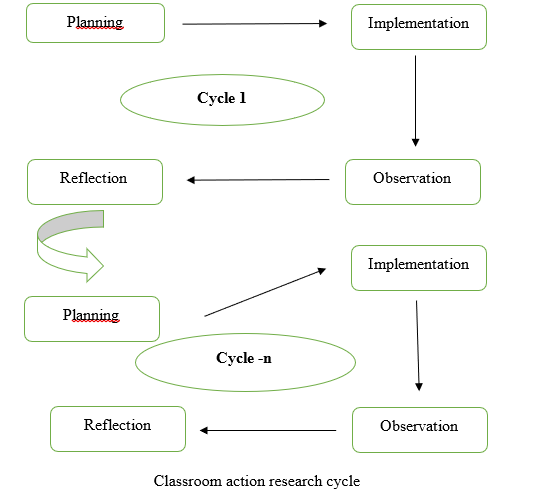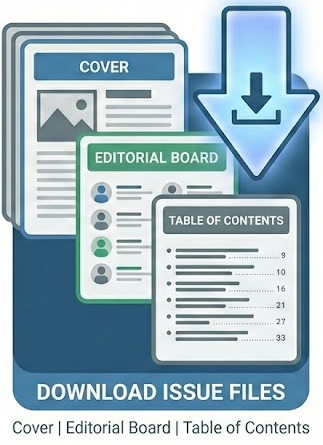Application of POE (Predict, Observe, Explain) Learning Model to Improve Understanding of Concepts
DOI:
https://doi.org/10.30736/seaj.v6i1.1021Keywords:
Natural Science Learning, Critical Thinking Skills, Learning Process, Media, learning outcomesAbstract
This research aims to determine the POE (Predict, Observe, Explain) learning model in improving students' understanding of concepts in the Chemistry subject at SMA Negeri 1 Gondang. This research method uses a class action research model. The research subjects were 35 students in class X-4. This research has a good impact on students' understanding of concepts, this can be conveyed through the results of cycle I and cycle II research. Cycle I completed 25 students with a completion percentage of 71.4%, while cycle II completed 28 students with a completion percentage of 82.9%. So in cycle I and cycle II there was an increase in students' understanding of concepts in the Chemistry subject.
Keywords: POE, Concept Understanding, Chemistry
Downloads
References
Amal Rifa'i. 2013. Pengaruh Model Pembelajaran Poe Berbantuan Alat peraga Terhadap Pemahaman Konsep Fisika Siswa Di Sma. Jurnal Luminous, 44-50.
Baharun dkk,. 2021. Manajemen Kurikulum Terpadu Berbasis Multiple Intellegences. Manajemen Pendidikan Islam, 35-42.
Domitila dkk,. 2018. Penerapan Model Pembelajaran Predict Observe Explain (Poe)Untuk Meningkatkan Pemahaman Konsep Dan Kemampuan Berfikirkritis Dasar Siswa. Jurnal Zarah, 48.
Fitrianingsih, E. (2021). Pengaruh Model Pembelajaran POE Tehadap Ketrampilan Berpikir Kritis di SMAN Rawajitu Selatan. Jurnal Pendidikan Biologi , 147-155.
Purba , D. 2020. Penerapan Model Pembelajaran Predict Observe Explain (Poe) Untuk Meningkatkan Pemahaman Konsep Dan Kemampuan Berfikirkritis Dasar Siswa. Jurnal Zarah, 47.
Restami dkk,. 2013. Pengaruh Model Pembelajaran Poe (Predict-Observe-Explain) Terhadap Keterampilan Berpikir Kritis. Bioedukasi, 149.
Septaria, K., & Rismayanti, R. (2022). The effect of scientific approach on Junior High school students’ Scientific Creativity and Cognitive Learning Outcomes. Jurnal Penelitian dan Pengkajian Ilmu Pendidikan: e-Saintika, 6(3), 173-189.
Septaria, K. (2022). Kemampuan Bertanya Versus Hasil Belajar Kognitif Mahasiswa: Analisis Korelasi Kemampuan Bertanya Pada Level Mahasiswa IPA. EDUPROXIMA (Jurnal Ilmiah Pendidikan IPA) Universitas Bhinneka PGRI Tulung Agung, 4(2), 60-71.
Septaria, K., Nissak, K., & Wulandari, S. A. (2023). Student Identity and Guided Inquiry Learning in Junior High School Students: A Correlation Analysis. Jurnal Penelitian Pendidikan IPA, 9(10), 8351-8358
Nurika, L., Septaria, K., & Setyaningsih, S. (2024). Implementing Science Creativity In Junior High School Students Using A Pirporsal Learning Model On Energy Resources. INKUIRI: Jurnal Pendidikan IPA, 13(1), 36-41.
Septaria, K., Fatharani, A., Dewanti, B. A., & Utami, Z. R. (2024). Satuan Pendidikan Aman Bencana (SPAB) Berbasis Partisipatory Rural Appraisal di Madrasah Aliyah Sunan Santri Lamongan. TAAWUN, 4(02), 229-240.Sufiati & , A. 2019. Peran Perencanaan Pembelajaran Dalam Meningkatkan ProfesionalitasGuru. Jurnal Pendidikan, 149-157.
Qolbyatin, N. A., Septaria, K., & Wulandari, S. A. (2023). Quartet Learning Media and Student Argumentation: Development Analysis and Correlation in Science Learning in Junior High Schools. INSECTA: Integrative Science Education and Teaching Activity Journal, 4(2), 138-150.
Wiguna, C. 2018. Penerapan Model Pembelajaran POE untuk Meningkatkan Pemahaman Konsep dan Kemampuan Berfikir Kritis Dasar Siswa. Jurnal Zarah, 47-52.

Downloads
Published
How to Cite
Issue
Section
License
Copyright (c) 2024 Imega Syahlita Dewi, Maylinda Dwi Rahmawati

This work is licensed under a Creative Commons Attribution-ShareAlike 4.0 International License.
Authors who publish with this journal agree to the following terms:
- Authors retain copyright and grant the journal right of first publication with the work simultaneously licensed under a Creative Commons Attribution-ShareAlike 4.0 International License that allows others to share the work with an acknowledgment of the work's authorship and initial publication in this journal.
- Authors are able to enter into separate, additional contractual arrangements for the non-exclusive distribution of the journal's published version of the work (e.g., post it to an institutional repository or publish it in a book), with an acknowledgment of its initial publication in this journal.
- Authors are permitted and encouraged to post their work online (e.g., in institutional repositories or on their website) prior to and during the submission process, as it can lead to productive exchanges, as well as earlier and greater citation of published work (See The Effect of Open Access).

This work is licensed under a Creative Commons Attribution-ShareAlike 4.0 International License.








